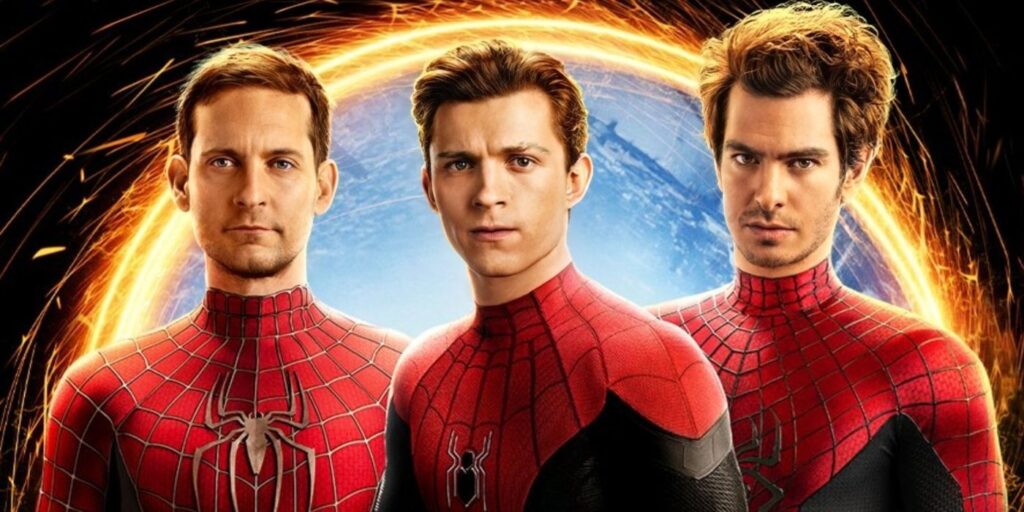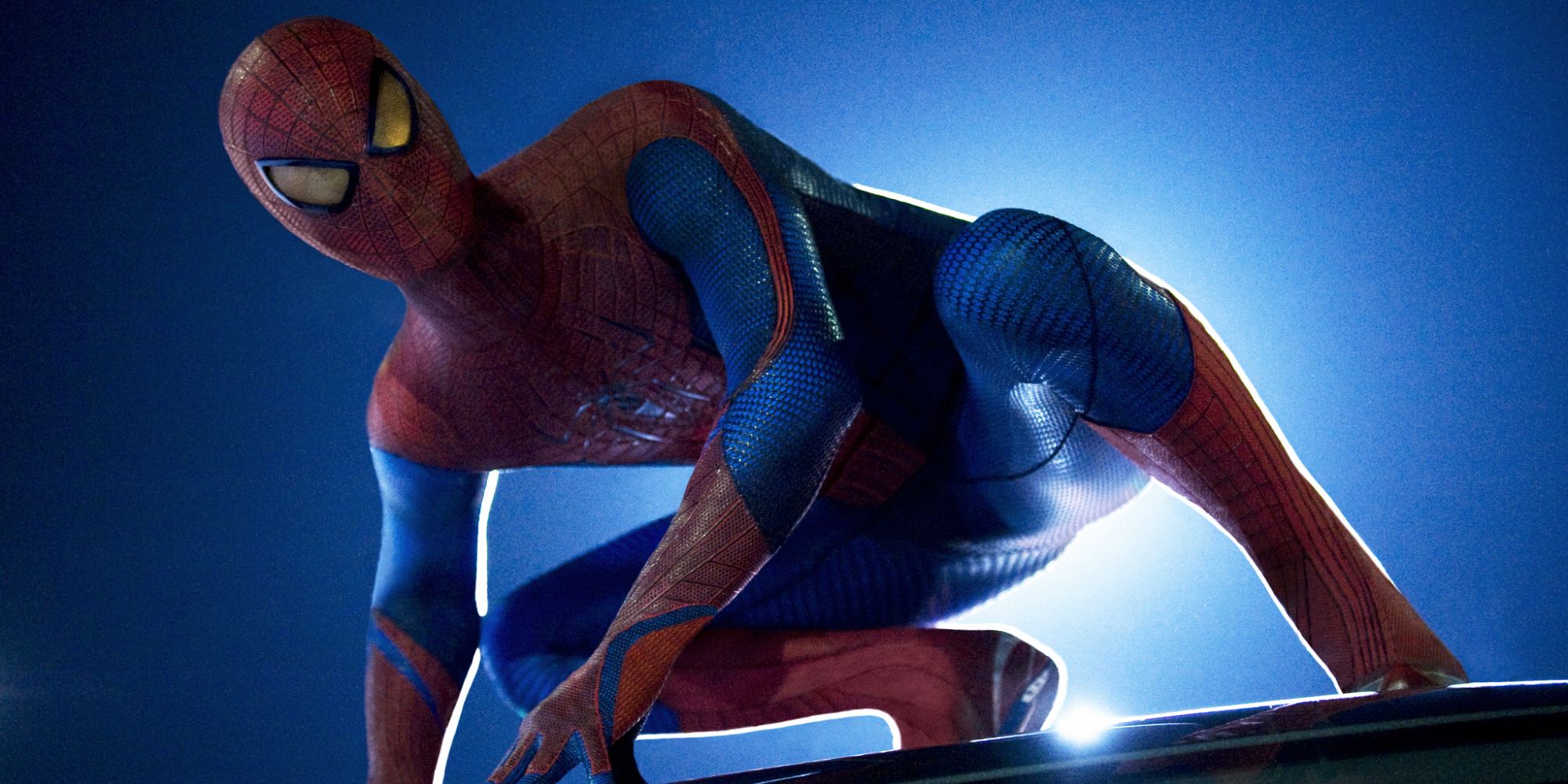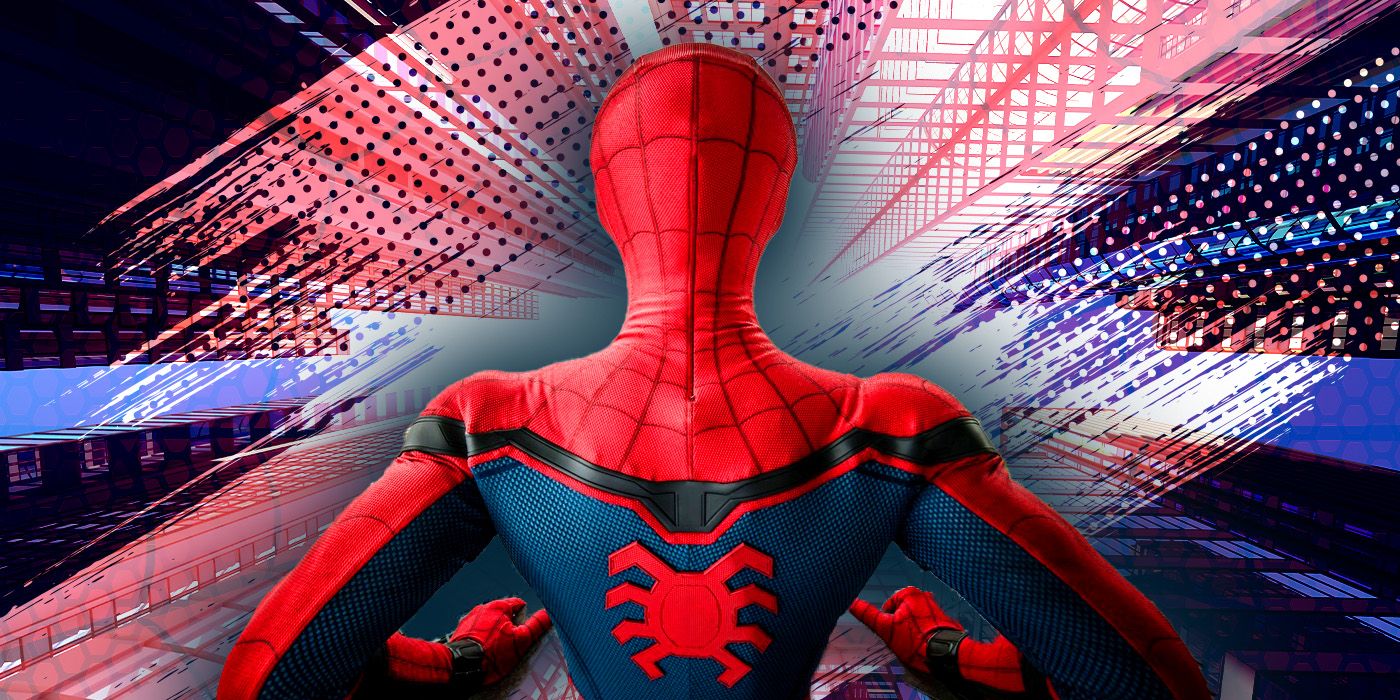Andrew Garfield’s Recent Comments Are Right — Live-Action Spider-Man Movies Should Be Way, Way Weirder

Andrew Garfield‘s performance as Spider-Man is highly popular to the point where fans were ecstatic to see him and Tobey Maguire return in Spider-Man: No Way Home. Now, Garfield is floating the idea of returning to play Peter Parker—with a twist. Garfield was a recent guest at the Middle East Film & Comic Con in Abu Dhabi, where he said he wants his next turn as Spider-Man to break from the norm: “It would have to be very weird…I would like to do something very strange. Something very unique, offbeat and surprising—kind of like the creative freedom they have with the animated ‘Spider-Verse’ movies.”
Garfield’s request is an interesting one, especially since he labeled the Spider-Verse movies as his creative inspiration. Spider-Man: Into the Spider-Verse is a standout due to how it mashes together different artistic styles to represent the different Spider-Men who come from different universes; thus replicating the feeling of reading a comic book. But Spider-Man’s entire history is weird, and it’s something the live-action films should lean into.
Spider-Man Was Always Meant To Stand Out From Other Superheroes
When Stan Lee and Steve Ditko brought Spider-Man to the pages of Amazing Fantasy #15, they wound up breaking all the established superhero rules. While most teenage superheroes were usually sidekicks, Peter Parker was a solo act. Superman was a paragon of virtue, but Spider-Man was feared and even slandered constantly by J. Jonah Jameson in the Daily Bugle. Even his origin—which finds him deciding to fight crime after learning that a burglar he failed to stop shot his Uncle Ben—feels less like it belongs on the comics page and more in an episode of The Twilight Zone. When discussing Spider-Man’s popularity, Lee revealed how Marvel’s then-editor Martin Goodman reacted to the initial idea of the web-slinger:
“He said people hate spiders, so you can’t call a hero ‘Spider-Man.’ Then, when I told him I wanted the hero to be a teenager, as he was in the beginning, Martin said that a teenager can’t be a hero, but only a sidekick. Then, when I wanted him not to be too popular with the girls and not great-looking or a strong, macho-looking guy, but just a thin, pimply high school student, Martin said, ‘Don’t you understand what a hero is?'”
Despite Goodman’s objections, Amazing Fantasy #15 was a smash success, leading to Spider-Man becoming one of the most prominent figures in the world of superheroes. Throughout the years, many Spider-Man stories have tapped into the weirdness at the character’s core. He’s grown four extra arms in an effort to rid himself of his powers, he’s been cloned, and he’s seen his robotic parents come back from the dead, set out to kill him. There are plenty of Spider-Man stories that veer off the beaten path, and any one of them could inspire Garfield’s return to the big screen. But there’s one run in particular that filmmakers should look to.
One Writer Pushed Spider-Man Into Uncharted Territory—And Sony Should Use Those Stories for Andrew Garfield’s Return
While it might be a pillar of pop culture, Marvel underwent bankruptcy in the late ’90s—and in the early 2000s, then editor-in-chief Joe Quesada made a series of bold moves to help bring the House of Ideas back on top. One of those ideas included recruiting J. Michael Straczynski to write The Amazing Spider-Man comics, with legendary Spider-Man artist John Romita Jr. on art duties. In the same vein as Stan Lee and Steve Ditko, Straczynski brought some truly strange stories to the page. His opening arc features Ezekiel Sims (who many might remember as the villain of disasterpiece Madame Web) putting forth the theory that the spider that gave Peter Parker his powers might be part of a higher purpose; it also introduced Morlun—a vampiric, nigh-unstoppable foe that wanted Spider-Man’s life force. Throughout his tenure, Straczynski would introduce mystical elements to Spidey’s world, which was a distant departure for the science-based hero.

Related
Yes, Spider-Man Is the Most Iconic American Superhero, and Here Are 10 Reasons Why
Spidey is synonymous with American pop culture.
Straczynski’s work has already influenced other Spider-Man films, particularly Tom Holland‘s tenure as Peter Parker. Iron Man acting as a mentor to Spider-Man, Peter’s Aunt May discovering his secret, and the idea of Spider-Man’s identity going public were all stories he wrote. But if Garfield wants a weird Spider-Man story in the vein of the Spider-Verse films, he should definitely pitch the idea of battling Morlun. A foe who’s basically Dracula on steroids is pretty weird, and Morlun’s family served as antagonists for the original Spider-Verse storyline in the comics. But Garfield isn’t far off from wanting a weird, unexpected movie, especially with a character as iconic and weirdly awesome as Spider-Man.





